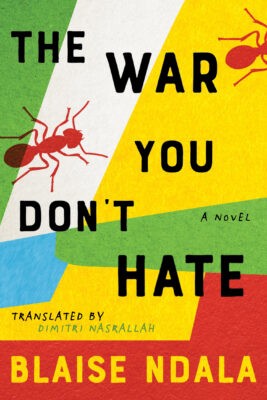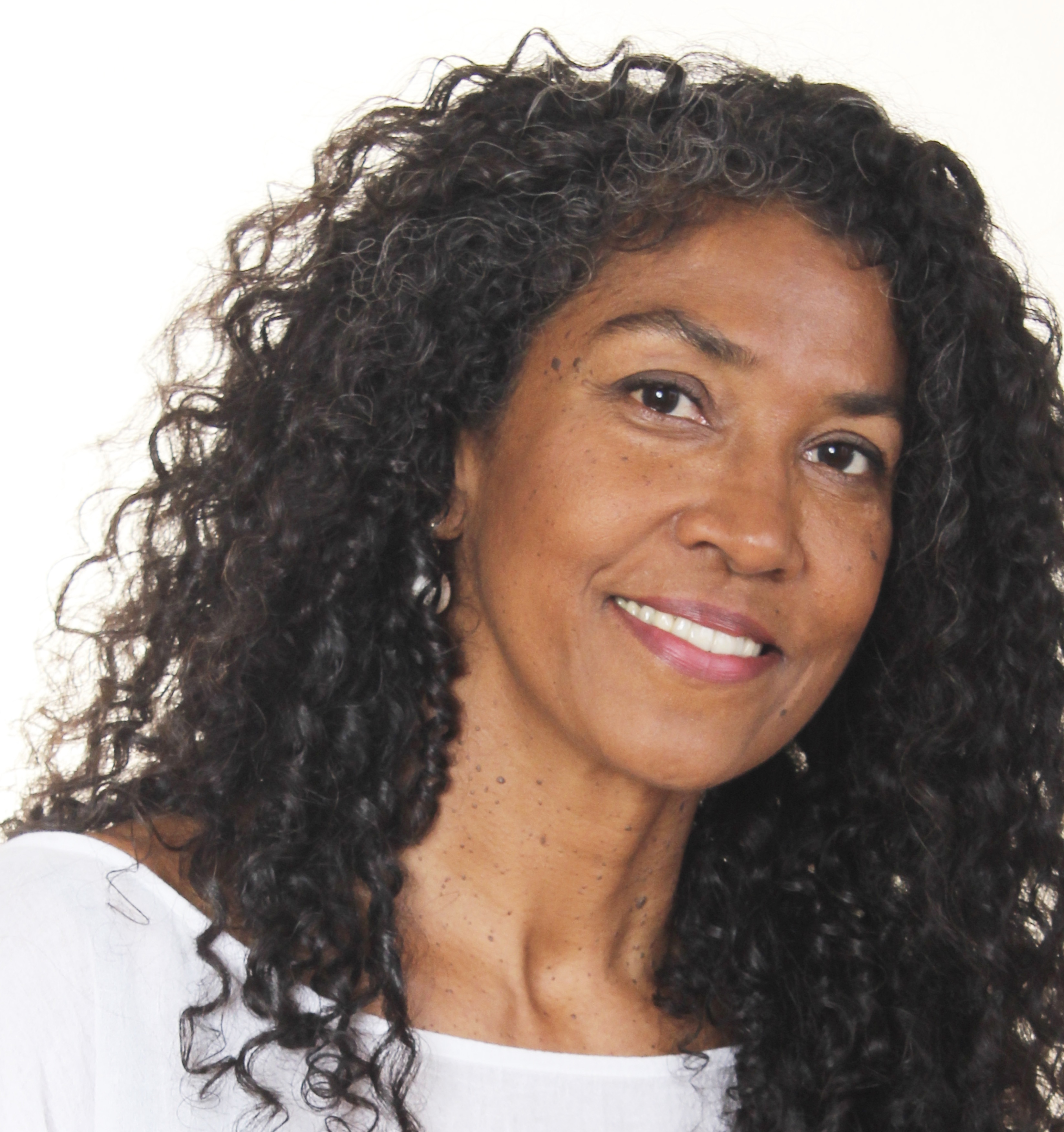“Whose Story Is It?” People familiar with this icebreaker party game know how it works: Guests write down a story and drop it into a container. A mediator reads the stories aloud and the group tries to guess whose story it is, while the person telling the tale works to convince the group that it’s their own.

The War You Don’t Hate
Blaise Ndala
Véhicule Press
$22.95
paper
400pp
9781550656558
Originally from the Democratic Republic of the Congo, Ndala left his homeland in 2003 for Belgium – Congo’s former colonial occupier – where he earned a degree in human rights law. In 2007, he emigrated to Canada and now works as a lawyer in Ottawa. When I ask him over Zoom about his path to becoming a writer, he talks fondly about his parents’ influence, both of whom were teachers and avid readers. From boyhood, Ndala and his dad read together. “He’d stop a story partway and ask me to imagine what happened next,” Ndala tells me. “It became a game between us. I’d write the rest of the story and present it to my dad.” Ndala’s mom was active in a theatre group. “I helped her memorize her part, which gave me an appetite to do theatre myself.” He performed in plays at school, and later on, tried his hand as a playwright. When Ndala was punished in math class for writing poems, instead of calculating sums, his mom convinced him to keep going.
“My dad left us when I was eleven,” Ndala explains. “My mom urged me on: ‘Don’t stop telling stories. One day, your dad will be in a bookshop or a library and spot a book with your name on it. He’ll realize he made a mistake by leaving.’” Ndala’s dad eventually returned home, and writing became its own reward.
Ndala’s first novel, J’irai danser sur la tombe de Senghor (2014), won the Ottawa Book Award for French fiction, was a finalist for the Trillium Book Award, and has been optioned for film. Ndala is writing the screenplay. His third novel, Dans le ventre du Congo (2021), received the Prix Ivoire pour la Littérature Africaine d’Expression Francophone and the Prix Ahmadou-Kourouma, and appeared in English last year as In the Belly of the Congo. “Are there common themes or subjects that run through your work?” I ask. “My obsession with Congo,” he replies. “It’s a country with many faces. Being a Congolese Canadian shapes my pen.”
The War You Don’t Hate focuses on the widespread aftershocks of the Second Congo War, also called Africa’s World War, the deadliest conflict since World War II. The Transitional Government of the Democratic Republic of the Congo (DRC) took power in July 2003; however, the peace process in eastern Congo has remained fragile.
The story opens in 2002 at the Academy Awards in Los Angeles, where Véronique Quesnel of Montreal basks in applause as she accepts the Oscar for best documentary film. Her picture, Sona: Rape and Terror in the Heart of Darkness, is the wrenching story of Sona, a Congolese teenager who escaped sex slavery. The pièce de résistance? Sona herself joins Véronique on stage, as Congolese singer-songwriter Lokua Kanza’s music envelops them all, and Sona bursts into tears: “Tears, the bottoms of which seem to glitter like shards of crystal, bead the faces on the giant screen which displays, trembling and bleary, the larger-than-life image that will sear the minds of all those watching…”
Meanwhile, from his room at Southern Cross Hospital in the Great Lakes Region of Africa, rebel fighter Master Corporal Red Ant of the Front for African Dignity, who battled the President-General and his “trash army” for “the good of the movement and the salvation of the country,” spews out his righteous rage in blue pen in a yellow notebook, two of the colours of the DRC flag. There, in his diary, “there will be no philosopher, no prophet perched on a pedestal, only Truth strutting around naked from one page to the next.” His anger is brined in grievances legion and legitimate: his father and his uncle’s murders, the displacement of families, widespread poverty, and an ongoing humanitarian crisis in eastern Congo.
With his signature irony, Ndala dramatizes Red Ant’s favourite pastime: watching a TV show called Heart to Body, in which has-been celebrities live the life of Burundian refugees and are filmed 24/7, in competition for votes. Red Ant’s obsession with this series is a deft echo of Véronique’s questionable ethics in making her documentary about Sona, and speaks to Ndala’s primary concern: the capitalization of others’ misery for material gain and celebrity.
The narrative tension ramps up when Red Ant and his wordsmith cousin, Baby Che, unite to avenge their fathers’ murders. Both are haunted by Véronique, with good reason. Their rebel army was complicit in the capture and rape of Sona and the other “loot women,” and thus, they are in the cross-hairs of Véronique’s “shoulder rifle,” or camera.
There are other surprises. Well into the narrative, the reader discovers a shocking yet inevitable twist about Sona’s fate and the fact that Véronique had to resort to a shady Plan B in order to bring her documentary to the silver screen, starring her poster girl. To avoid spoilers, I’ll just say: the savage ironies pile up. In turn, Red Ant and Baby Che wonder: How did a well-intentioned activist become an ethically suspect filmmaker? And how can they take advantage of her descent?
The War You Don’t Hate is concerned with the chaotic ravages of war, as well as our contemporary obsession with fame and the ruthless quest for notoriety at any cost. Fame is indeed the worst kind of four-letter word when it’s gained at the expense of exploiting others’ misfortune. After the war, with one rebel conspirator detained in The Hague awaiting trial for his war crimes, the others seal a devil’s pact: a coup de grâce, bathing them both in fetid celebrity.
The War You Don’t Hate is a voice-driven novel with a rapier’s edge. Ndala’s tone is sly, barbed, and seasoned with gallows humour. The bitingly satiric Hollywood scenes contrast markedly with the raw, raunchy rants of Red Ant. Ndala confides that getting the tone and rhythm right was his biggest challenge. “It took me three tries.”
“What do you hope readers will get out of the novel?” I ask. “I hope they will catch what they want to catch,” he says, adding, “There’s a dark side to giving, to being a do-gooder, a violent side. People have their own agendas. It’s about power, who has it, who doesn’t. It’s about visibility, who is seen and who remains invisible.”
These days, with his work as a human rights lawyer and the demands and joys of being a relatively new dad, Ndala squeezes his writing in between the cracks. The good news is a fourth novel is on the way. “I sent it to my publisher and will soon work on revisions.” Its working title: The Glory of the Traitors. The novel takes place in North America, Europe, and Lubumbashi: Congo exerts its magnetic force once again.mRb







0 Comments